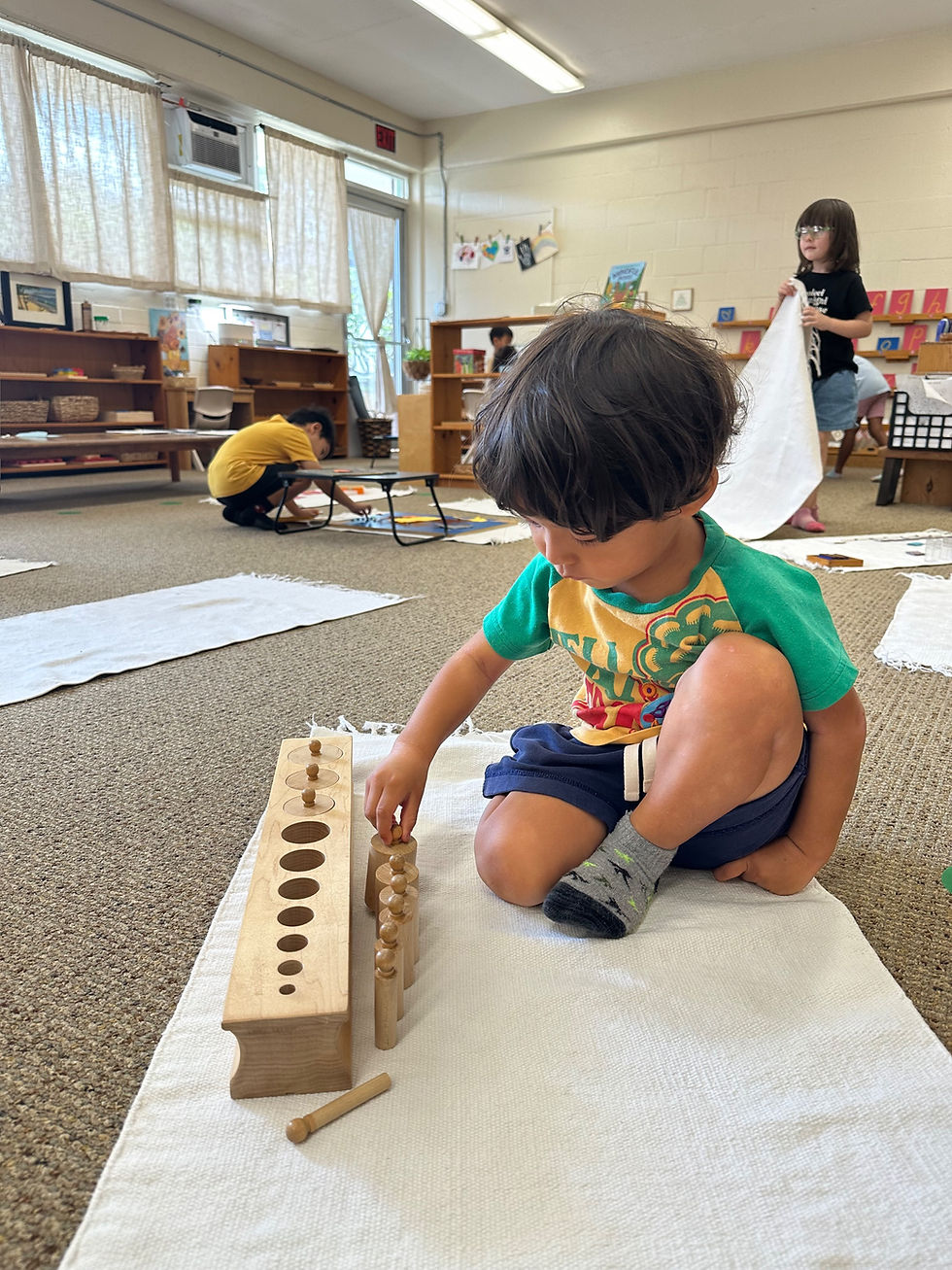Raising Resilient Children, the Montessori Way
- Cari Suzuki
- Mar 21, 2023
- 3 min read

According to the dictionary, re·sil·ient means to be able to withstand or recover quickly from difficult conditions. We are all born with the capacity to be resilient, but we must work on it throughout our lives.
As parents, we can all agree that raising resilient children is a big challenge and responsibility. In part because inside we want to protect them from every possible obstacle or pain. Yet we know that life is full of disappointments and that having the ability to bounce back from them is essential for growth, success, and happiness. Helping children develop resilience should not be confused with dismissing the child’s emotions or reactions. Quite the opposite: resilience comes from the development of social, emotional, and coping skills. If children trip and fall, or simply have a bad day, acknowledge their pain, and make sure they know their emotions are valid.
Encourage children to look at the situation from a different angle so they can think about how they can learn from it, grow, and move on. It’s not always easy, because even though we all trip and fall from time to time, the truth is that as children grow, so do the challenges they encounter. They may not be invited to a birthday party, or may not be selected to be part of a team. They may take longer than others to master certain skills.
Fortunately for parents, the Montessori approach provides a culture of resilience that they can take as an example for their parenting repertoire. The independence and self-correction seen in the Montessori classroom is a perfect example of cultivating resilience: if the child spills something, he is encouraged to clean; if she can’t complete a lesson, she is encouraged to finish when ready. The Montessori approach supports children as they work on fixing problems on their own, rather than adults removing or remediating problems for them. This empowers children, increases self-awareness, and gives them a confidence boost to bounce back from disappointments.
There are three main aspects to raising and nurturing resilient children the Montessori way:
Independence: when your children are struggling with a task, resist the urge to jump in and solve it for them (a.k.a helicopter parenting). Apply the Montessori principle of “help me do it myself” to foster confidence. Encourage your children to try new things, even if you think they may be hard for them. Create a list of things they can do by themselves (dressing, putting their plate in the sink, etc.), and encourage them to follow through with these tasks.
Emotional Awareness: Approach tantrums and emotional outbursts as the perfect opportunity for children to understand and identify their emotions. This will encourage them to express themselves, manage a wide range of emotions, and ask for help when necessary.
Confidence: When a task is hard or frustrating, encourage your children to keep trying by using positive language. Show them that making mistakes is normal and that they present an opportunity to solve a problem in a different way. Point out your child’s strengths and encourage them to keep working on them, as well as in their limitations.
And last but not least, model resilience by approaching difficult situations with patience and a positive attitude yourself! Remember that children are watching and they learn what they see. And what they see is us.
Author: Ana Hanssen






